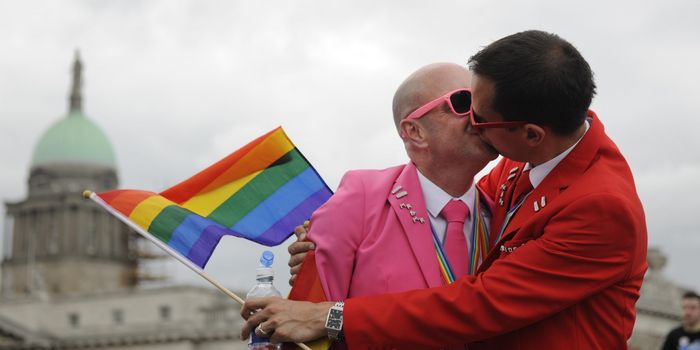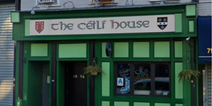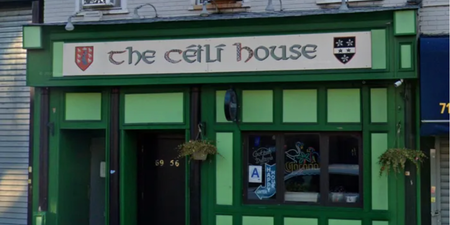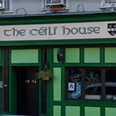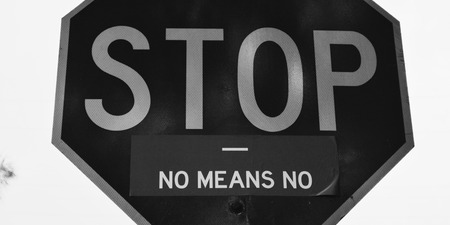
26 years ago today, Ireland decriminalised homosexuality.
June 24 1993 marked the decriminalisation of same-sex sexual activity after a law from 1861 had made male homosexual acts punishable by penal servitude.
The new law, the Criminal Law (Sexual Offences) Bill, was proposed by then Minister for Justice Máire Geoghegan-Quinn.
She said that decriminalisation would allow gay people in Ireland to “express themselves in personal relationships without the fear of being branded and being punished as criminals.”
“It is not a matter of laying siege to all the old certainties,” she said. “It is, rather, a matter of closely looking at values and asking ourselves whether it is necessary, or right.”
“We are seeking to end that form of discrimination which says that those whose nature is to express themselves sexually in their personal relationships, as consenting adults, in a way which others disapprove of or feel uneasy about, must suffer the sanctions of the criminal law.
“We are saying in 1993, over 130 years since that section of criminal law was enacted, that it is time we brought this form of human rights limitation to an end.”
This day 26 years ago – 24 June 1993 – homosexuality was officially decriminalised in Ireland.
Minister for Justice Máire Geoghegan-Quinn said the move would allow gay people to “express themselves in personal relationships without the fear of being branded… as criminals.” pic.twitter.com/7VyfdvRBeJ
— This Day in Irish History (@ThisDayIrish) June 24, 2019
The nineteenth century Offences Against the Person Act rendered homosexual acts illegal until June 1993, but the fight for gay rights in Ireland began long before then.
The late 1970s saw the beginning of the social movement around homosexual law reform.
David Norris began legal proceedings to decriminalise homosexual acts in Ireland in 1997. The later-to-be senator took his case to the High Court in 1980 claiming that the law was infringing on his right to privacy.
His case was defeated by the High Court, and again by the Supreme Court three years later following an appeal.
In 1988, Norris brought his case to the European Court of Human Rights. Norris v Ireland was subsequently won by the senator on the basis that the law infringed on a person’s private life.
“The first and immediate thing about the European decision is the enlargement of dignity and freedom for gay people,” said Norris at the time.
“But I think a decision like this enhances the dignity and freedom of all the people of Ireland because it pushes us towards a more tolerant and plural society.”

The ruling paved the way for the eventual decriminalisation of homosexuality as it proved the Victorian law was in contravention of the European Convention on Human Rights.
Norris, along with future presidents of Ireland Mary Robinson and Mary McAleese, had set up their Campaign for Homosexual Law Reform in the late 1970s – a move that finally led to full decriminalisation almost two decades later.
Last year, on the 25th anniversary of the law’s removal, Taoiseach Leo Varadkar issued a public apology to those who had been discriminated against or isolated as a result of the legislation.
“Today the people I want to pay a special tribute to are the unknown heroes, the thousands of people whose names we do not know, who were criminalised by our forebears,” he said.
“What we can say is that we have learned as a society from their suffering. Their stories have helped change us for the better.
“They have made us more tolerant, more understanding and more human.”
